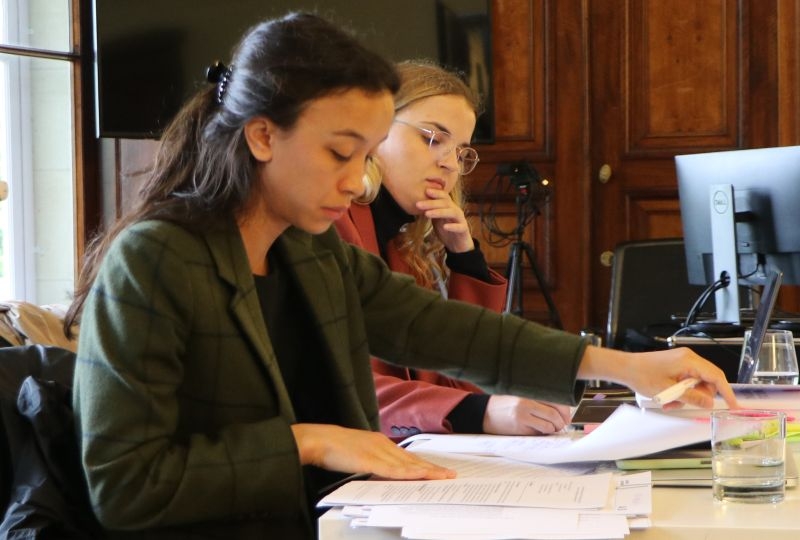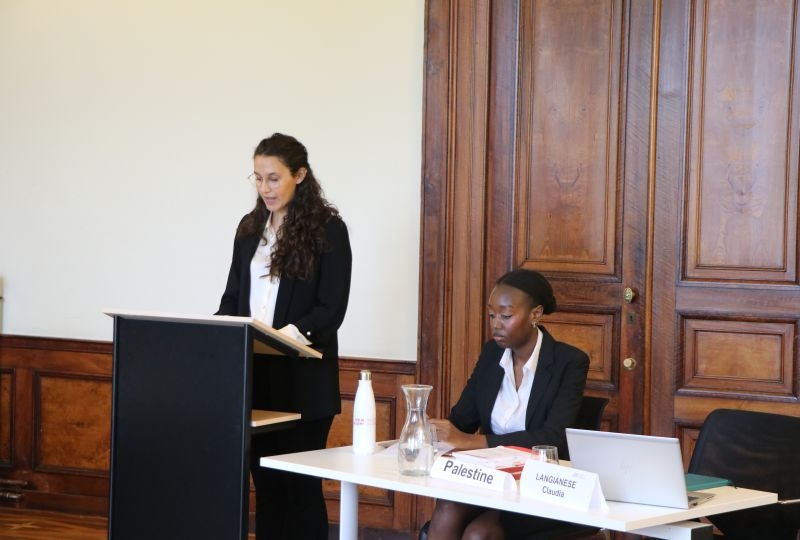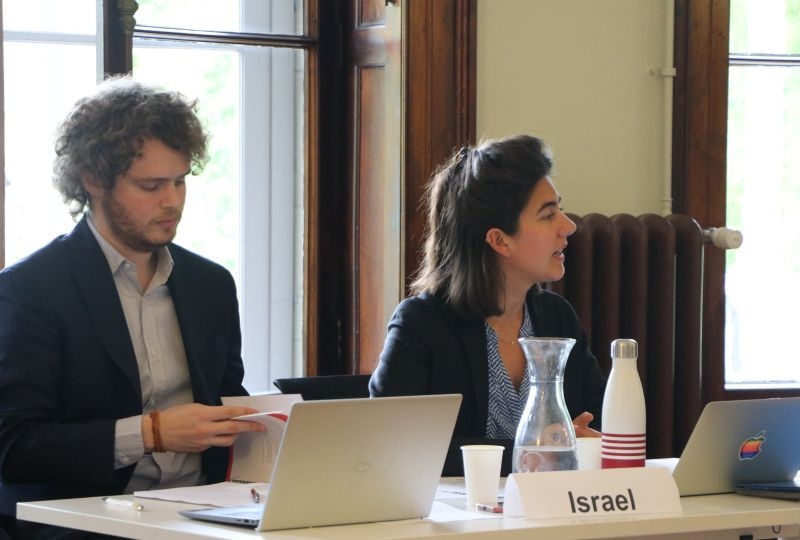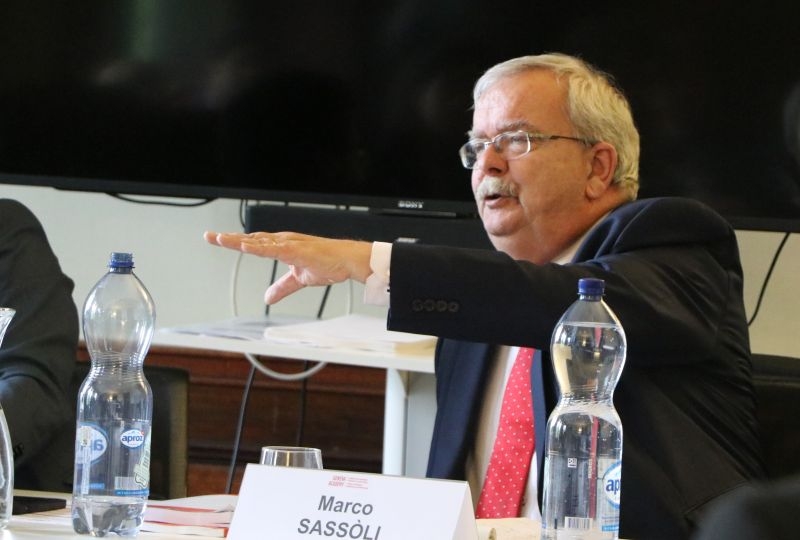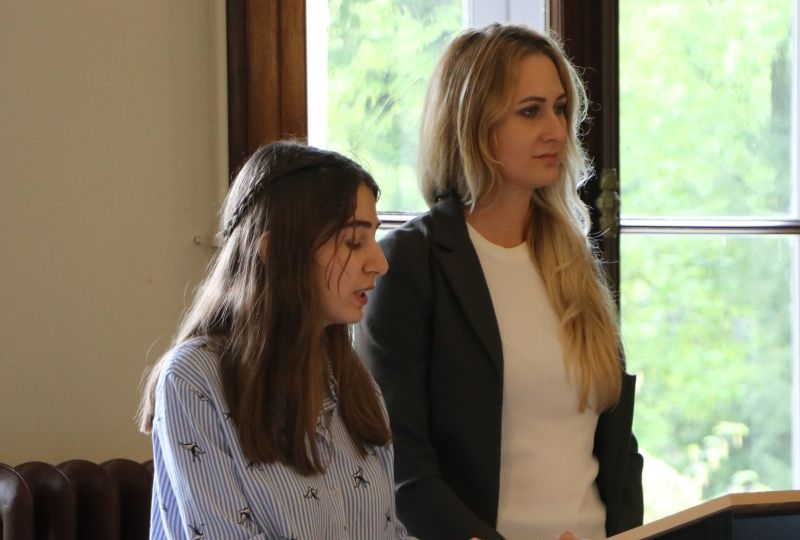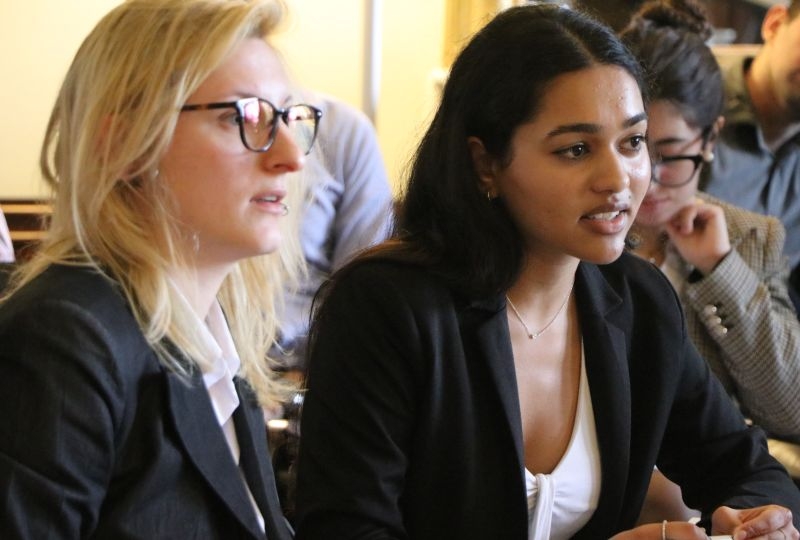The exercise focused on the July-August 2014 armed conflict in and around Gaza, which took place in the context of 'Operation Protective Edge'. Launched by Israel, this operation claimed many civilian victims and gave rise to numerous mutual accusations of violations of IHL.
In 2015, the United Nations Commission of Inquiry made its findings on violations of IHL and human rights committed in this conflict public and the International Criminal Court Prosecutor decided to proceed with an investigation into that situation and a Pre-Trial Chamber confirmed that the Court had the necessary jurisdiction.
In front of a jury – composed of Professor Marco Sassòli, Angelo Gnädinger, former Director-General and General-Delegate for the Middle East at the International Committee of the Red Cross, and our teaching assistant Revaz Tkemaladze – teams of two students, one team for Israel and one for Palestine, pleaded on:
- The classification of the conflict, of Gaza as an occupied territory and the applicable law
- The blockade of Gaza and Israel’s obligations concerning humanitarian needs
- The targeting of persons and objects, and weapons used
- Proportionality and precautions in attacks.
‘Students showed that they mastered the law and facts, their arguments were very convincing and most coordinated very well their interventions. Despite all the emotions linked to the context of Israel and Palestine, the presentations remained always nuanced, professional and respectful of the adverse party, while making the strongest possible legal arguments for Israel or Palestine respectively. Some were rhetorically powerful on the law but none was passionate about the cause. It is also remarkable to notice that those who are weaker in written assignments are sometimes the best in pleading’ underlines Professor Sassòli.
‘The pleadings were challenging in many regards. We already knew that there can be some vagueness around the law and its interpretation, but this is also true for the facts. Once I became accustomed to the factual context and the points where legal tensions existed were identified, everything became much clearer. I really enjoyed watching my classmates completely get into their roles. The questions of the jury were also very stimulating and allowed us to sharpen our analysis’ says Kheda Djanaralieva, a 2022–2023 LLM student.


